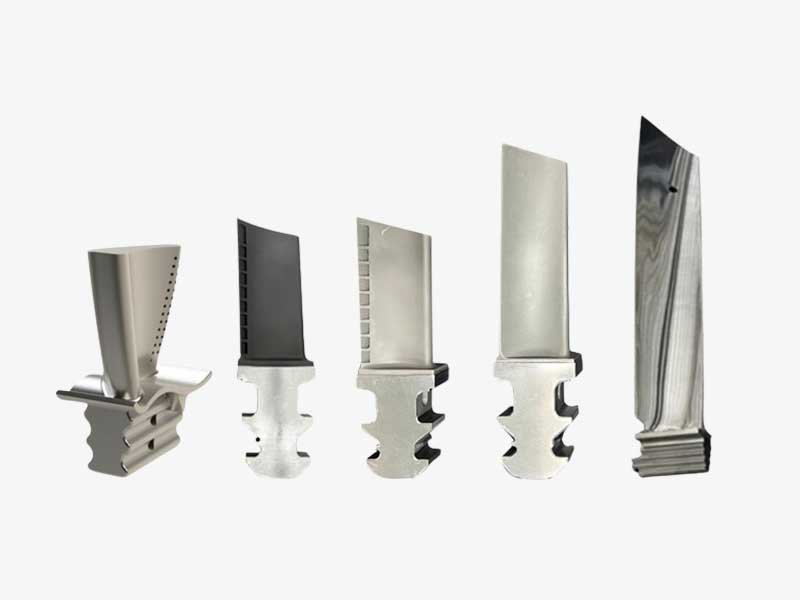Machining plays a key role in the manufacture of turbine blades. Through machining, turbine blades can be precisely shaped, trimmed and detailed to achieve the size, shape and surface quality required by the design.
During the machining process, various advanced processing technologies and equipment, such as CNC machining, are used to ensure the accuracy and efficiency of the processing. The blade profile, edge, installation location, etc. are carefully processed to ensure that they can operate efficiently when the turbine is working, while having good aerodynamic performance and mechanical strength.

High precision, able to achieve very fine size and shape control;
Complicated shapes can be machined to meet the unique design requirements of turbine blades;
Greater flexibility in material selection, able to adapt to the processing of a variety of materials;
Higher surface quality can be obtained, which is conducive to improving blade performance;
Partial processing can be performed to target specific parts;
Easy to correct, convenient to adjust deviations in the manufacturing process;
Personalized customization can be achieved to better meet the special requirements of different application scenarios.
Stellite (cobalt-based alloy): Mainly used in wear-resistant and high-temperature corrosion environments, such as the wear-resistant parts of turbine blades.
Titanium alloy: Common titanium alloys include Ti-6Al-4V (ASTM B348), which is used for its excellent strength-to-weight ratio and high-temperature resistance.
Inconel (nickel-based alloy): Common Inconel alloys include Inconel 718 (UNS N07718), Inconel 625 (UNS N06625), etc., which are used for blade manufacturing in high temperature, high pressure and corrosive environments.
Hastelloy (nickel-based alloy): Hastelloy alloys such as Hastelloy C-276 (UNS N10276) are used in highly corrosive environments and are suitable for chemical and petrochemical industries.
Nimonic (nickel-based alloy): Nimonic alloys such as Nimonic 80A (UNS N07080) and Nimonic 263 (UNS N07263) are used in aviation and industrial applications with high temperature and pressure.
Monel (nickel-copper alloy): Monel alloys such as Monel 400 (UNS N04400) are used in seawater corrosion environments and are suitable for marine and chemical equipment.
Single crystal materials: Single crystal turbine blades usually use a combination of high temperature alloys such as liquid metal and thermal barrier coatings to improve high temperature resistance, fatigue resistance and mechanical properties.
Part numbers alone are not sufficient to ensure performance.
To guarantee precision and compatibility, please provide:
Drawings or used samples for reverse engineering.